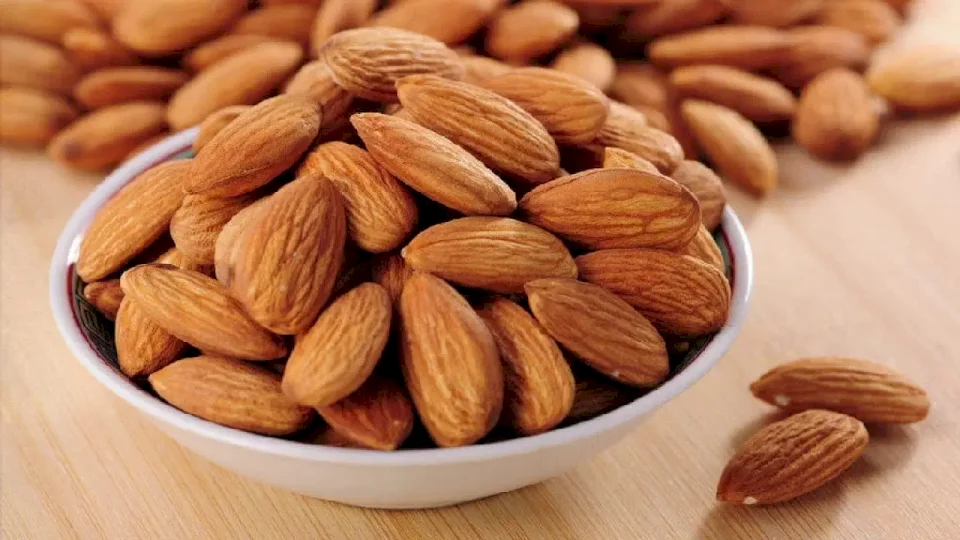
What Role Do Almonds Play in Reducing Visceral Fat?
SadaNews - Concern about reducing visceral fat leads to long-term health protection while maintaining a slim appearance. Excess visceral fat, the type that surrounds internal organs, is linked to an increased risk of heart disease, type 2 diabetes, and other chronic diseases. According to what was published on the Eating Well website, consuming a simple handful of one type of nut can make a real difference.
Stacy Lofton, a nutritionist, states that "almonds provide a comprehensive range of nutrients including heart-healthy fats, plant proteins, and fiber," adding that "it helps to keep you feeling full longer and affects how the body stores fat, especially around the waist." Almonds can support healthy body formation, and there are nutritional elements behind their following benefits:
Feeling Full
Almonds enhance the feeling of fullness - the sensation of being full that helps regulate hunger and prevent overeating - which aids in reducing visceral fat. This is largely due to their content of fiber, protein, and fats. Each of these nutrients plays a role in slowing digestion and informing the brain that the person has consumed enough food. Lofton indicates that "with about 6 grams of protein and 3 grams of fiber per handful, about 28 grams, almonds provide two strong servings of nutrients that promote satiety and help maintain stable blood sugar levels."
Stability of Blood Sugar Levels
Insulin resistance plays a key role in how visceral fat accumulates around the body's organs, and almonds contain monounsaturated fats, magnesium, and antioxidants like vitamin E and polyphenols, all of which work together to support insulin sensitivity and regulate blood sugar levels. Research shows that consuming almonds has a beneficial effect on glucose metabolism.
Lofton states: "Magnesium is involved in hundreds of metabolic processes, including how the body handles glucose and insulin. Almonds are surprisingly a good source, providing about 20% of daily needs in just one handful."
Nutritionist Erin Guite emphasizes that "the fiber and healthy fats in almonds slow down digestion and reduce insulin spikes, which is essential for metabolic health."
Low Fat Absorption
Almonds are theoretically high in calories, but not all of these calories are available to the body. Their composition makes them harder to digest, which is great news if someone is trying to reduce visceral fat while keeping a feeling of fullness and nutrition. A review of the scientific literature in 2023 revealed that the metabolic energy (the number of calories that the body absorbs and actually uses) in whole almonds is about 20-25% lower than what is stated on nutrition labels.
Lofton says, "Including almonds in a balanced diet leads to supporting metabolic health and improving insulin sensitivity, and can be part of a successful weight management strategy."
Reducing Oxidative Stress
Almonds provide more than just fiber, protein, and healthy fats - they are also rich in antioxidants with anti-inflammatory properties. Guite explains that "the vitamin E and polyphenols found in almonds help combat inflammation and oxidative stress." These compounds help neutralize free radicals, which can damage cells and promote chronic inflammation - a key factor in the accumulation of visceral fat and poor metabolic health.

Measles Returns to America.. and the Community Loses the Weapon of "Herd Immunity"

China Conducts First Successful Test of Airborne Energy Station

WhatsApp Launches Advanced Security Feature for Maximum Protection Against Cyber Attacks

A Photo of Netanyahu Covering His Phone Camera Sparks Widespread Controversy Over Digital...

Content Creators Sue "Snapchat" for Copyright Infringement in AI Model Training

Chemistry Reveals the Secret of the "Fur" Surrounding Brain Proteins

Why Does Acne Increase in Winter and How Can We Get Rid of It?

